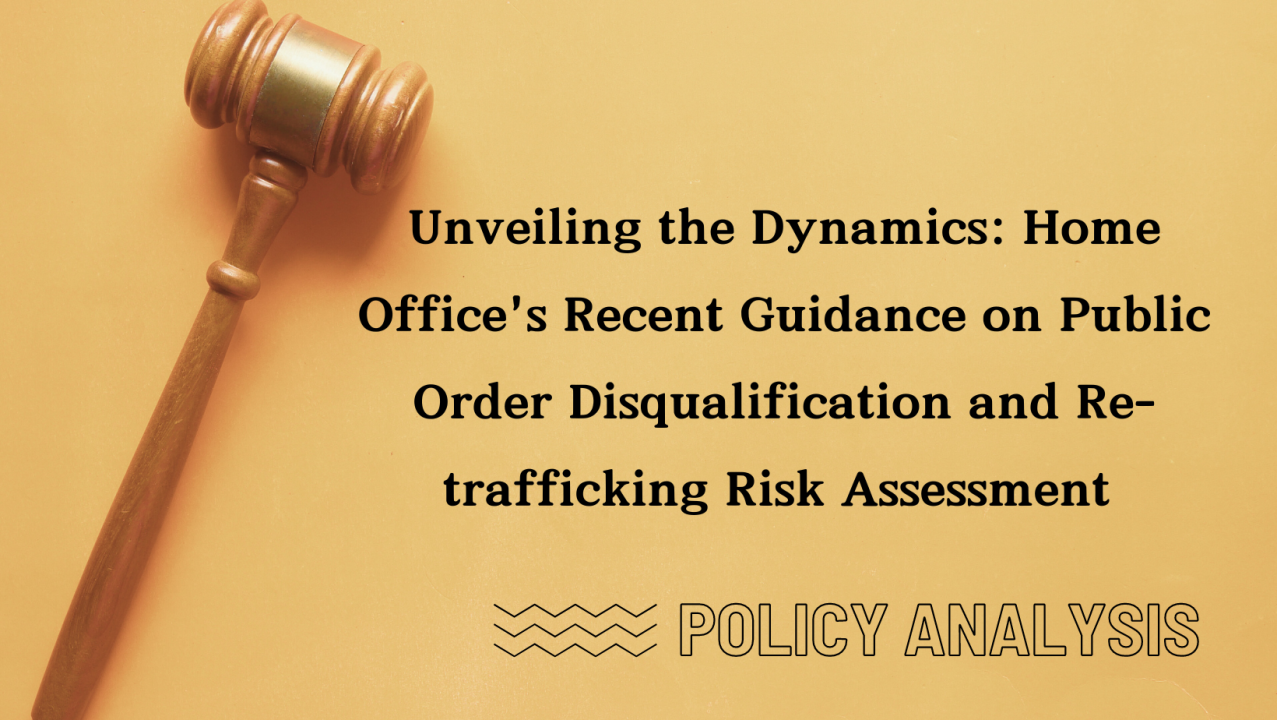The landscape of immigration law is ever-evolving, and the Nationality and Borders Act 2022 has introduced significant changes, particularly in the realm of human trafficking victims’ protection. Section 63 of the Act addresses the disqualification of individuals from protection based on their perceived threat to public order or claims of victimhood made in bad faith. However, recent developments, such as the case of R (MAN & LAN) v Secretary of State for the Home Department AC-2023-LON-001904 & AC-2023-LON-001640 and the subsequent issuance of new guidelines by the Home Office, shed light on important considerations.
The Impact of R (MAN & LAN) v Secretary of State for the Home Department:
In response to legal challenges, the Home Office released a crucial guideline on January 8, 2024, titled “Modern Slavery: Statutory Guidance for England and Wales (under s49 of the Modern Slavery Act 2015) and non-statutory guidance for Scotland and Northern Ireland (accessible version).” This guideline introduces a pivotal element to the assessment process – the evaluation of “re-trafficking risk.”
Assessing Re-trafficking Risk:
A key feature of the new guideline is the requirement for the Home Office to assess the risk of re-trafficking even if a person is deemed a threat to public order under Section 63. The decision-maker must determine if there is a “real and immediate” risk of re-trafficking. If no such risk is identified, the Public Order Disqualification decision “should” be made. However, if a genuine and immediate risk exists and cannot be mitigated, the individual remains eligible for support and protection under the National Referral Mechanism (NRM).
Further Safeguarding Measures:
To enhance transparency and accountability, the guideline mandates a second pair of eyes review all Public Order Disqualification decisions resulting from the framework and re-trafficking assessment. This ensures alignment with policy, and records of the review’s outcome and the responsible officer must be maintained.
Concerns and Judicial Review:
Despite these safeguards, the guidance stipulates that individuals cannot appeal Public Order Disqualification decisions or re-trafficking assessments. Instead, the avenue for challenging such decisions remains through judicial review. While judicial review is a powerful tool, it should be approached judiciously. The guidance does not provide for a reconsideration policy in these specific scenarios, emphasizing the importance of thorough initial assessments.
Conclusion and Practical Advice:
As practitioners, it is crucial to remain vigilant in scrutinizing Home Office decisions, especially those involving the assessment of re-trafficking risk. While the new guideline is a positive step forward, attention to detail is paramount. If considering judicial review, ensure a robust case by thoroughly examining the facts and Home Office decisions in the light of the policy guidance.
In conclusion, the intricate interplay between public order disqualification and re-trafficking risk assessment requires a nuanced understanding. By staying informed and meticulous in our approach, we can navigate this complex terrain to safeguard the rights and protection of those affected by human trafficking.#NationalityAndBordersAct
#HumanTraffickingProtection #HomeOfficeGuidance #LegalInsights #ModernSlaveryAwareness


